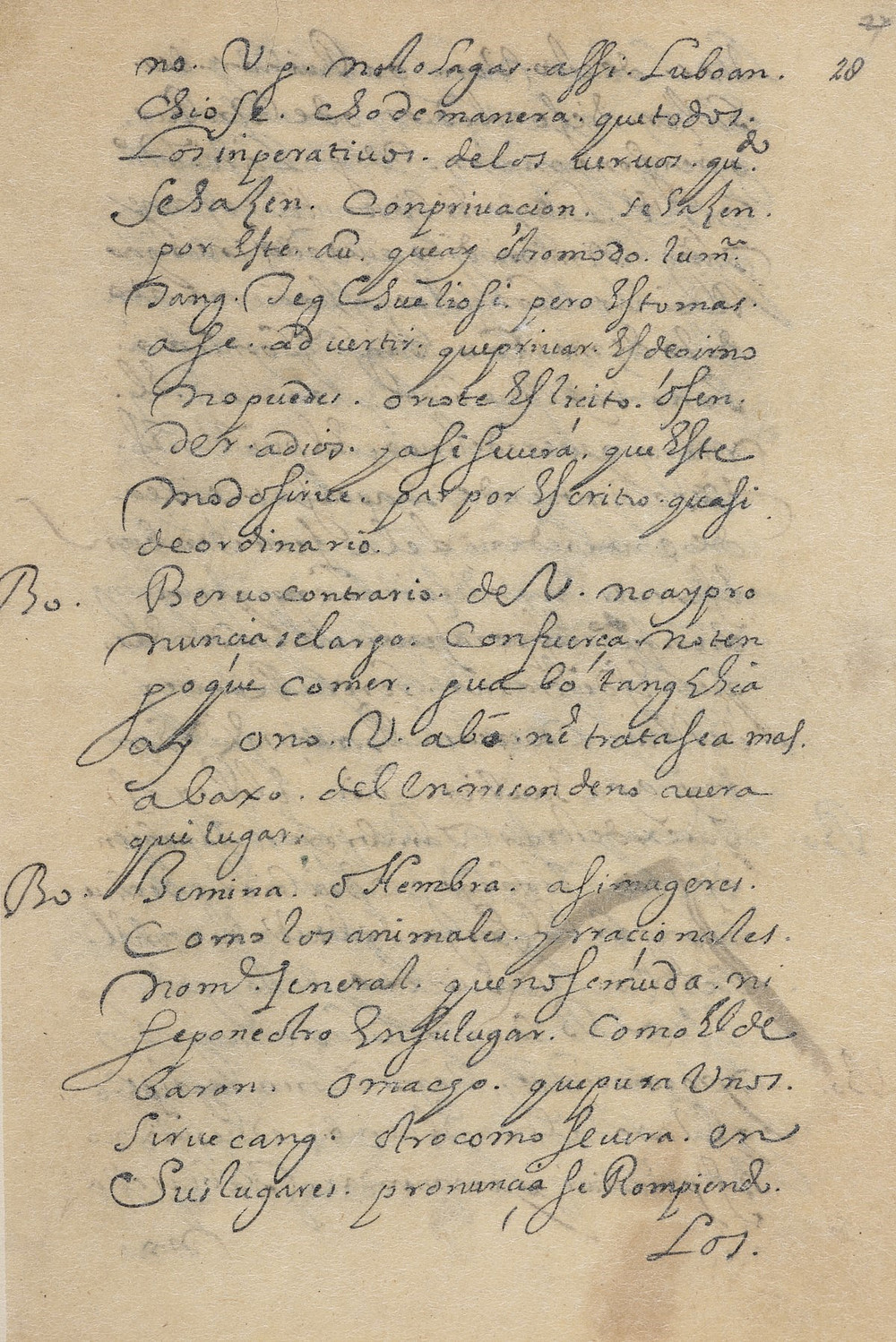The EMHo project centers on a Chinese-Spanish manuscript dictionary of the early seventeenth century: the "Bocabulario de lengua sangleya por las letraz de el A.B.C." Written by an anonymous Spanish missionary and comprising more than 200 double-sided folios, the Bocabulario offers a rich documentation of the language spoken by Chinese migrants in Manila. This language is known as Southern Min or alternatively, especially in Southeast Asia, as Hokkien. The project aims to make the content of the Bocabulario accessible through a digital scholarly edition comprising digital facsimiles, a diplomatic transcription, and an English translation. An extended normalized representation of the original Spanish text and additional linguistic annotations with interlinear glosses, tone transcriptions, and Chinese characters are intended to make the data accessible to a broader linguistic community, thereby creating new possibilities for the digital encoding of non-European languages.
On the basis of this edition, the Bocabulario will be analyzed by situating it in three interrelated contexts: language history, missionary linguistics, and historical sociolinguistics. The historical-linguistic analysis builds on the hypothesis that Chinese migrants in Manila spoke a contact variety known as Early Manila Hokkien comprising features of different Southern Min dialects. Through systematic linguistic comparison, the project aims to determine the status of Early Manila Hokkien within the group of Southern Min dialects and the Southeast Asian linguistic area. Research in the field of missionary linguistics aims to classify the linguistic metalanguage and lexicographic structure of the Bocabulario from an Ibero-Romance perspective and to fathom, through terminological and lexicographic comparisons, how missionaries conceptualized a Chinese language outside of China – and thus in the absence of intellectual exchanges with Chinese language scholars.
In its socio-historical dimensions, the project foregrounds the fact that Early Manila Hokkien was a language spoken by migrants. Since Chinese migration significantly added to the linguistic complexity of Manila, the project endeavors to reconstruct the nature of the linguistic setting of the city in the early phase of Spanish colonialism. Concretely speaking, we seek to gain insights into the status of Early Manila Hokkien vis-à-vis other languages and of prevailing colonial language ideologies that shaped the sociolinguistic setting.
The project is funded by the DFG and the FWF as part of the international WEAVE program and is being carried out in cooperation with Hans-Jörg Döhla (Department of Romance Studies, University of Tübingen) and Henning Klöter (Institute for Asian and African Studies, Humboldt-Universität zu Berlin).

Duration | 01.07.2024 - 30.06.2027 |
Funding | FWF |
Grant amount | € 204.057 |
Unit | |
Profile area Uni Graz | |
Principal investigator | |
Project staff | Melanie Frauendorfer, BA Mag. Elisabeth Steiner, MA. Sabrina Strutz, BA. MA. |
Project homepage | https://gams.uni-graz.at/emho |